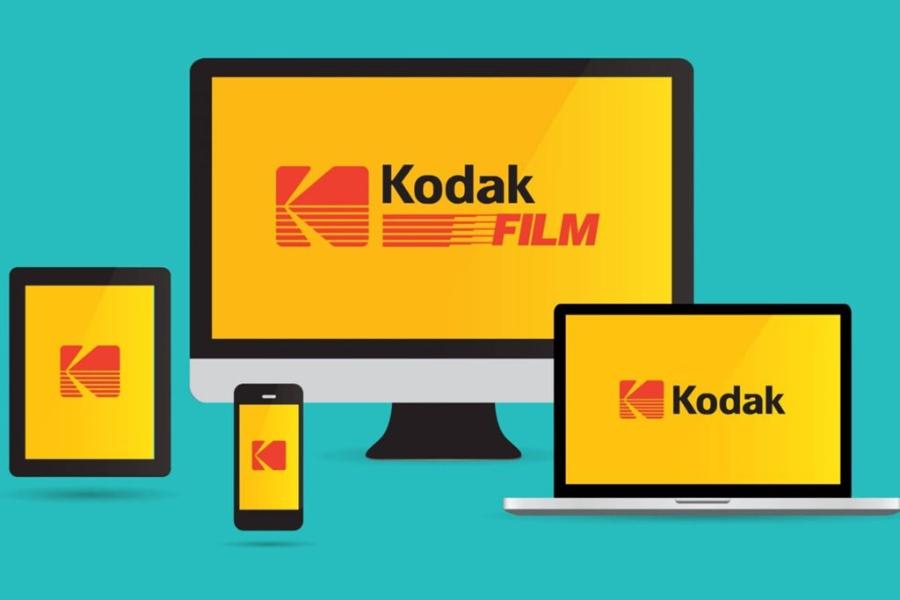Best Selling Products
Understanding Responsive Logos? The Latest Approach to Brand Identity Design
Nội dung
- 1. Learn About Responsive Logo?
- 1.1. What is Responsive Logo?
- 1.2. The Importance of Responsive Logo
- 1.3. Enhance Brand Recognition
- 1.4. Enhance User Experience
- 1.5. Adapting to Different Platforms
- 2. Why Responsive Logos Are Becoming The New Trend
- 2.1. Mobile Technology Development
- 2.2. Requirements of Social Media Platforms
- 2.3. Aesthetics and Professionalism
- 2.4. Optimizing for User Experience
- 3. Advantages of Responsive Logo
- 3.1. High Flexibility
- 3.2. Improve User Experience
- 3.3. Increase Brand Recognition
- 3.4. Cost Savings
- 4. How to Design a Responsive Logo
- 4.1. Simple and Concise
- 4.2. Using Logo Variations
- 4.3. Experiment With Sizes
- 4.4. Ensure Color Compatibility
- 5. Successful Brands With Responsive Logos
- 5.1. Google
- 5.2. Coca-Cola
- 6. Conclusion
Discover what Responsive Logos are and how to apply them in your brand identity design. Understand the flexibility, effectiveness and latest trends in modern logo design.

Responsive Logo is a modern concept in logo design, helping brands easily maintain consistency and strong recognition on all devices. In this article, Sadesign will help you understand Responsive Logo and the latest approach in brand identity design.
1. Learn About Responsive Logo?
1.1. What is Responsive Logo?
Responsive logo is a term used to describe logos that can change their size, shape, or layout to fit different screen sizes. Based on the principles of responsive design, responsive logos are optimized for a variety of devices, from mobile phones, tablets to larger screens like desktop computers. The main goal of a responsive logo is to ensure that a business’s brand remains recognizable and legible across all platforms.
This concept goes beyond just resizing a logo, and can also involve simplifying complex elements or changing the way the logo is presented. For example, a logo may appear in its full form on a large screen, but when viewed on a phone screen, it may be shortened or have some details changed to make it more suitable.
.jpg)
A responsive logo will retain its identity and impact even when it is scaled or resized. This helps brands stay professional and accessible wherever they are.
1.2. The Importance of Responsive Logo
As the use of mobile devices increases, responsive logos are no longer an option, but a necessity for every brand. A logo that fails to adapt and adapt to devices will result in a poor user experience and negatively impact brand recognition.
1.3. Enhance Brand Recognition
Logos are a core element of branding. If a logo is not easily recognizable when scaled down or resized across different devices, customers may not recognize the brand. Responsive logos ensure that customers can easily recognize the brand whether on a phone or tablet screen.
1.4. Enhance User Experience
Users today tend to access websites from a variety of devices. If the logo does not adapt well to the screen size, it can be frustrating and affect the overall experience. Responsive logos improve the user experience, making them feel comfortable when accessing your website or application.
1.5. Adapting to Different Platforms
Every platform, from websites, to mobile apps, to social media, has different design requirements. With a flexible logo, brands can easily maintain visual and messaging consistency across all platforms without having to worry about the logo becoming distorted or unreadable.
2. Why Responsive Logos Are Becoming The New Trend
2.1. Mobile Technology Development
With the explosion of mobile devices, it is extremely important to maintain a logo that looks clear and beautiful on every screen. Responsive logos are the perfect solution to this need. Not only that, brands need to ensure that their logos not only look good but are also easily recognizable when displayed on small devices such as mobile phones.
2.2. Requirements of Social Media Platforms
Nowadays, businesses not only build their brand through websites but also on social media platforms such as Facebook, Instagram, Twitter, or LinkedIn. Each of these platforms has different image sizes. To keep your logo beautiful and recognizable, a responsive logo is necessary. Instead of having to adjust or create multiple versions of your logo, a logo can automatically change to fit each platform.
2.3. Aesthetics and Professionalism
Responsive logos are not only about flexibility, but also about aesthetics and professionalism in design. A logo that is optimized for multiple devices shows that the business is up to date and keeping up with the latest design trends, while also showing respect for the customer experience.
2.4. Optimizing for User Experience
As mentioned, responsive logos help provide an optimal user experience. When users visit a website or app and see that your brand’s logo can easily adjust to their screen size, they feel the care and attention to detail of your brand. This not only increases trust, but also makes them feel more comfortable using your services.
3. Advantages of Responsive Logo
3.1. High Flexibility
The most important thing about responsive logos is their ability to adapt to different sizes and platforms without losing brand recognition. The logo can be scaled down or restructured while still retaining its original message and identity. This increases flexibility in the application of the logo across different media.
3.2. Improve User Experience
Having a responsive logo helps brands optimize the user experience on mobile devices. A logo that adjusts to display properly on small screens makes it easier for users to recognize and interact with the brand. The user experience is enhanced when they don’t have to deal with a logo that loses clarity or becomes difficult to read.
3.3. Increase Brand Recognition
Responsive Logo is not only a part of brand identity but also an important factor in increasing brand recognition. A logo optimized for multiple platforms will help your brand maintain consistency in the eyes of customers, no matter what media channel they access it through.
3.4. Cost Savings
By designing a responsive logo, brands can save on the cost of changing and adjusting their logo for each different platform. Instead of having to create multiple versions of the logo for different types of media, a responsive logo reduces the effort and cost of the design process.
4. How to Design a Responsive Logo
.jpg)
4.1. Simple and Concise
When designing a responsive logo, simplicity is key. The simpler a logo is, the easier it is to adapt to different sizes and spaces. Complex elements, small details, or long text can have difficulty displaying on small devices like phones or smartwatches.
4.2. Using Logo Variations
An effective responsive logo design strategy is to create multiple variations of the logo. For example, the logo can have a full version for large spaces and a simpler version (with just a single icon or letter) for smaller spaces. This helps maintain brand recognition in all situations.
4.3. Experiment With Sizes
Before going live, designers should test responsive logos at different sizes. Testing on different platforms like mobile, tablet, and desktop will help ensure that the logo remains legible and recognizable at all resolutions.
4.4. Ensure Color Compatibility
Color is an important element in brand recognition. When designing a responsive logo, designers need to ensure that the logo’s colors remain prominent and easy to read at both small and large sizes. At the same time, the choice of color must consider the appropriateness of the platform on which the logo will appear.
5. Successful Brands With Responsive Logos
5.1. Google
.jpg)
Google, one of the world's leading technology corporations, is a typical example of successful application of responsive logo. When users access Google services through devices with different screen sizes, from mobile phones, tablets to desktop computers, the Google logo will automatically change its size, shape, or components to suit each device.
5.2. Coca-Cola
Coca-Cola, one of the largest global brands, has also demonstrated the power of responsive logos in its marketing strategy. The Coca-Cola logo has been an icon that has remained virtually unchanged for over a century, but when it moved to digital platforms, especially on mobile devices, the company changed the way it was presented to fit any screen.
Coca-Cola's Responsive Logo: A Blend of Tradition and Modernity
The Coca-Cola logo is often seen with its signature font and strong graphic elements. However, when applied to mobile devices, the Coca-Cola logo retains its clear recognition but with an appropriate size and proportion. This helps consumers not lose the brand experience when using devices with small screens.
6. Conclusion
Responsive Logo is not only a new design trend but also an essential requirement in the modern digital world. The above article has provided an overview of responsive logos, helping you understand their importance in building a strong, flexible and recognizable brand. If you are looking for innovation in brand identity design, responsive logo is definitely a great choice to start with.












































